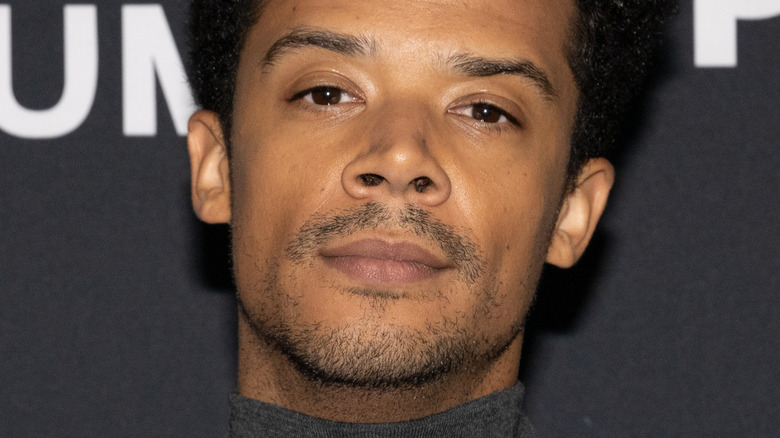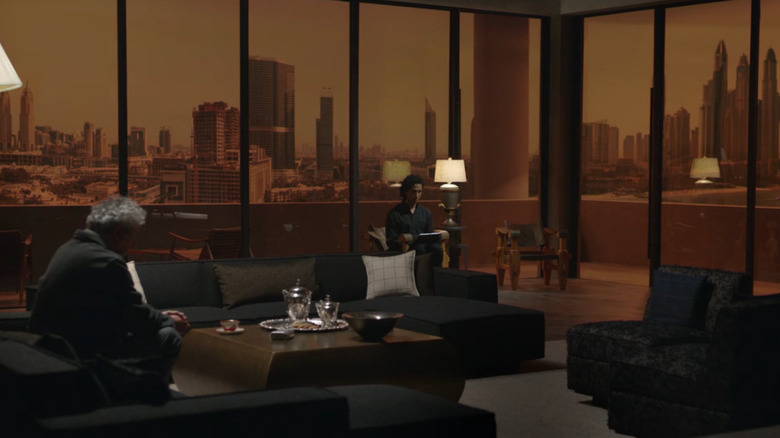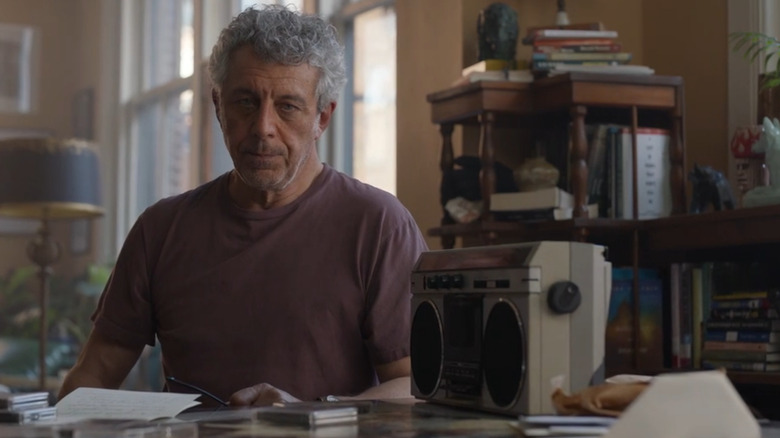Interview With The Vampire Episode 3 Finally Explains The Changes From The Original Story
Being a long-lived vampire means that one can typically hold onto grudges for an extended period of time. As where normal humans have only a finite amount of time on this planet, for all intents and purposes, vampires in Anne Rice's "Vampire Chronicles" franchise are effectively immortal, assuming they do not meet the sun. Even then, the longest-lived vampires can walk in the daylight with minimal fuss, which means that there is plenty of time to ruminate on bad decisions from the past.
AMC's "Interview with the Vampire" is based on the book of the same name, and although it stays true to the spirit of the book, the settings and characters have been changed to make it fit more appropriately in the modern-day era. In the books, Louis is a slave and plantation owner in the late 1700s, while in the television series, Louis (Jacob Anderson) is a turn of the 20th-century brothel owner. However, the show cleverly references previous events between Louis and Daniel Molloy (Eric Bogosian) — the reporter who is conducting said interview. By doing so, the show can pay homage to what came before and chart a fresh story through the popular tale of Louis and Lestat (Sam Reid).
Louis has told this story before to Daniel, but this version is the most true
Considering that Louis called Daniel out to Dubai in Saudi Arabia, this is a far different location than where the interview took place in either the book or the 1990s movie. Fortunately for viewers, the tonal shift and location change are actually explained within the context of the series. It is established that Louis and Daniel had met previously in the 1970s and that Daniel had interviewed Louis back then. It is then revealed that the story Louis told back then is significantly different than that what is being told today, and Louis elaborates the reason for this — that he is in a different state of mind now and that the 1970s interview was more of a performance. Specifically, that's the reason why Louis is far more amiable to Lestat in this iteration of the story, which helps to explain why Louis and Lestat seem more like lovers as opposed to the book or movie version of the story.
In an interview with Entertainment Weekly, Anderson said of Louis and Lestat's relationship, "Whenever I talked about something that Louis had said or that was in the script, because this show is Louis' recollection of events, Sam would just be like, 'Lie. Lie. That's a lie. Did that happen? Is it real? Didn't happen that way.' Very unhelpful for my preparation. I got really icy about it a few times. 'I don't want hear this. I have to believe something is true.' It's nice be able to believe what you're saying."
Daniel Molloy deletes the original interview after hearing Louis' confession
In that same interview with Entertainment Weekly, Lestat actor Sam Reid added, "I love how this series plays with the way memory works. There are lots of different perspectives that come in, which allows us to have that overarching question throughout the series about whose perspective is it and what is true and what isn't, which is a reflection on a lot of relationships."
He continued, "Two people experience the same thing, but it is remembered very differently by those two people, particularly when you're talking about love and heartbreak and breakups and fights and getting back together again and all that kind of stuff." Although the shift in character origin is never explained within AMC's "Interview with the Vampire," the context of Lestat and Louis' relationship certainly has changed. As one might remember from the movie or the book in which the show is based, Louis is far more antagonistic towards Lestat, although they seem much more like exceptionally passionate (although somewhat erratic) lovers in this iteration. This fact isn't lost on Daniel Molloy during this modern-day retelling of the story, and after Louis clarifies that this is the "truest" version, Daniel deletes all of his recordings and notes from the 1970s interview.
For fans of the "Vampire Chronicles," this represents an interesting way of creating its own path through the popular story, and it will be fascinating to see how this new dynamic between Lestat and Louis paints the rest of the tale and their future interactions.


